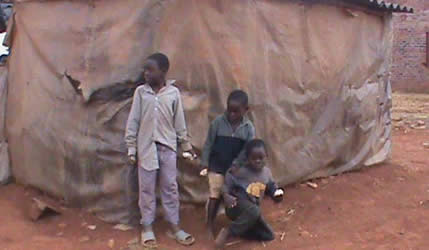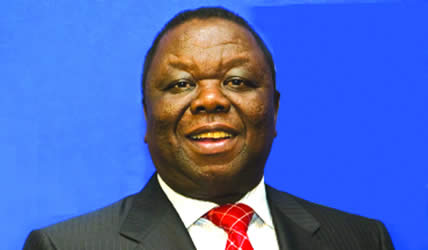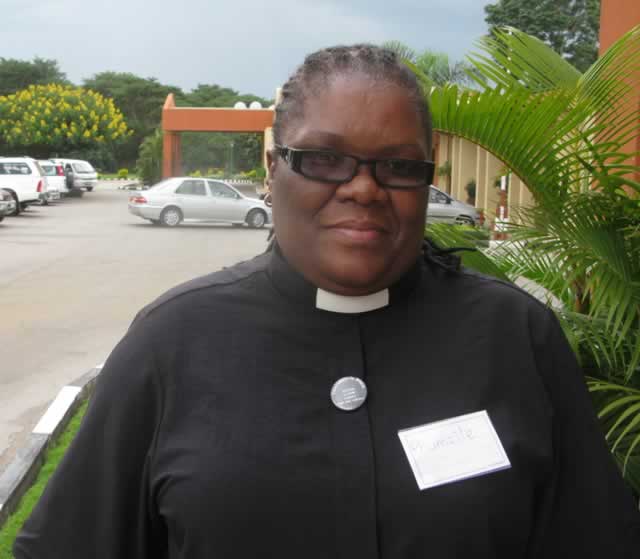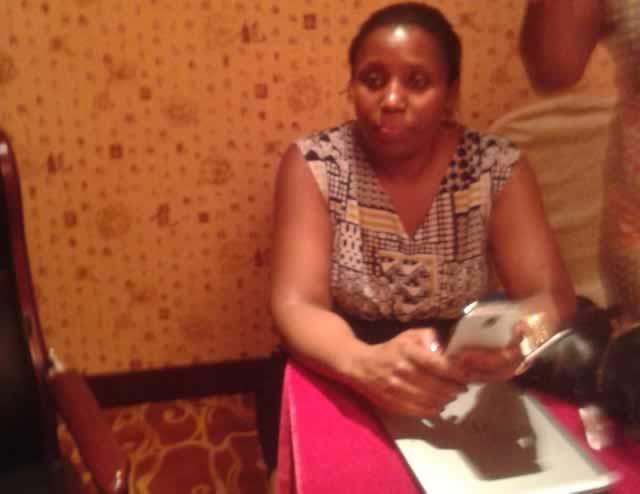Youths unite for a good cause

hungry,” said Mr Charles Nyoni, Advocacy and Communications manager of Vision HIV/Aids.
The organisation is not involved in a one off event, but is there everyday for the orphans.
Vision HIV/Aids seeks to provide orphans and vulnerable children with access to basic rights such as the right to shelter, education and food as enshrined in the UN Convention on Child Rights.
“Vision HIV/Aids also undertakes programmes to equip young people who are infected and affected with HIV with life skills to enhance sustainable development in their communities,” said Mr Nyoni.
Vision HIV/Aids promotes behaviour change as a pillar in the prevention and the spread of HIV.
The organisation has four programmes divided into various projects aimed at improving the accessibility of basic rights, social services and protection of children affected and infected with HIV and Aids and children in child headed households.
“Food is one of the basic rights of children hence the need to provide food. Vision HIV/Aids provides food packs to vulnerable children on a monthly basis as a mitigatory measure against malnutrition,” said Mr Justice Mbabvu who is the Director, Vision HIV/Aids.
Since most children in slums live in poverty, the organisation sources and distributes clothing and blankets to improve their self esteem.
The distribution of soap and sanitary pads on a regular basis helps the organisation to promote the children’s right to better health.
“Every child has the right to shelter; therefore the organisation also thrives to build decent shelter for children in child-headed families and those living in ultra poverty. Without decent shelter, children particularly girls are vulnerable to sexual abuse and exploitation,” Mr Mbabvu added.
The organisation noted with concern that girls in child-headed families were vulnerable to sexual exploitation and abuse and seeks to empower those in such circumstances.
“Most of the girls in child-headed families fall pregnant during their teens as they opt to exchange sex for survival.
“This also puts them at a great risk of getting infected with HIV.
“The girls are not in a position to demand safe sex, hence end up having unprotected sex and having unwanted pregnancies,” said Mr Nyoni.
“The project aims at reviving the lost hope as it gives these young mothers and their children a conducive environment for development through life skills training programmes and income generating projects. The organisation offers psycho-social support and is non-judgmental,” said Mr Nyoni
Psycho-social support is part of therapy to help children cope with traumatic situations. Focus group discussions are used to gather information to come up with appropriate interventions.
Under the Educational Support Programme the organisation conducts some outreach programmes to identify children who would have dropped out of school due to reasons beyond their control. Deserving children are then placed into formal schools and provided with educational assistance (stationery, school fees and uniforms). The organisation also makes use of a mobile outreach school to rehabilitate school drop-outs and reduce illiteracy in the communities by offering informal education to children who never had a chance to progress with their education.
“We find that some of the children are no longer in a position to attend formal school. We offer them informal education as most of them would have missed the chance to attend school,” Mr Nyoni said.
“We equipping them with the right training.
“We provide an enabling environment for those youths who are too old to get into formal school,” he said.
“The life skills and entrepreneurship support programme is aimed at empowering youths, particularly those heading households, who did not make it in formal education under the project.
“We want to equip them with requisite skills and knowledge to promote self reliance and the capacity to care for their siblings.
“Under this programme, the organisation assists youths to obtain driver’s licences, provide skills in building, hairdressing, carpentry, and horticulture among others,” Mr Nyoni said.
The current economic and humanitarian challenges the country faces have resulted in the severe socio-economic hardships for child-headed households and children affected and infected with HIV and Aids suffer the brunt most.
With the hardships facing many people we find that not many are in a position to help orphans. When they are ‘helped’ at times it is with strings attached.
“Today’s sad scenario has been aggravated by the fact that many of them are forced to drop out of school in order to care for a sick relative or seek informal and often risky income generating activities in order to contribute to the house hold income.
“In all these cases, children’s education, socio-development, health care and their confidence, ability to progress towards a productive and happy adulthood are affected,” he pointed out.
“Therefore we are kindly requesting for assistance this festive season. This will complement our endeavour to uphold their rights and promote children living under hard circumstances access to basic social services hence mitigating the impact of the HIV and Aids pandemic,” Mr Nyoni appealed.
As the nation joins the rest of the world in marking World Aids Day on December 1 in Dulibadzimu Stadium, Beitbridge this year, let us remember that the Four Zeros, zero discrimination, zero Aids-related deaths, zero new infections and zero tolerance to gender based violence are made possible with your input.
Also remember all those helping in alleviating the hardships faced by orphans nationwide.
Vision HIV/Aids is reachable on [email protected]
The future that we hold in trust for our children will be shaped with the fairness we show to other people’s children. — Marian Wright Edelman.









Comments